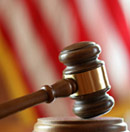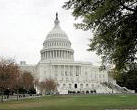|
|
|
New US state laws take effect with fiscal year
Law Center |
2007/07/02 08:24
|
| As a tornado bore down on southwestern Indiana in 2005, the National Weather Service issued a radio warning urging people in its path to seek shelter. But many residents did not hear the alert because they did not have radios equipped to receive it. That will change on Sunday, when Indiana enacts a law requiring mobile homes to have weather radios. “My family would be here had I known that weather radios existed,” said Kathryn Martin, who pushed heavily for the law after the tornado shattered the Eastbrook Mobile Home Park and killed dozens of people, including three of her relatives. The Indiana regulation is one of hundreds of new laws taking effect on July 1, when most states begin their fiscal years. Among them are efforts to encourage alternative energy in Nevada and Minnesota, tougher rules against illegal immigrants in Georgia and Idaho, and higher minimum wages in Illinois, Michigan and Pennsylvania. The Indiana tornado hit before dawn on Nov. 6, 2005, with winds estimated at 200 miles an hour. Twenty of the 25 victims of the storm were in mobile homes on the outskirts of Evansville, where emergency officials said few had radios or access to shelters. The Indiana General Assembly responded last year, passing the weather-radio proposal with overwhelming support. A similar effort is under way on the federal level to make the radios a requirement nationwide. The radios, which cost about $30, operate on frequencies dedicated to the weather service. Officials say they often broadcast warnings before regular radio and television stations. More than 20 million Americans live in mobile homes, according to Census estimates. The National Oceanic and Atmospheric Administration has found that the fatality rate for residents of mobile homes is 10 times greater than those in homes with fixed foundations. These are among other laws taking effect on July 1: - Virginia will require convicted sex offenders to register e-mail addresses with the state. - Nevada will force certain sex offenders to live at least 1,000 feet from schools and other places where children gather. - Tennessee will require everyone buying beer at a store to show ID. - California will ban sales of soda in schools during school hours and put new limits on sugar and fat content in school food. - Colorado will ban abstinence-only sex education in all schools, except for one district, requiring schools to teach sex education based on scientific research and to include information on contraception. In Indiana, people riding in back seats and in S.U.V.’s and pickups will have to wear seat belts. The mandatory belt law had a loophole for vehicles with truck plates. |
|
|
|
|
|
|
Ice Miller Expands Chicago Area Operations
Law Firm News |
2007/07/02 08:19
|

Ice Miller LLP, Indianapolis' largest law firm, announced today the opening of an office in DuPage County, Illinois. The new office marks the Firm's expansion in the Chicago area and is the result of the attorneys from the Lisle, Illinois office of Chicago's Wildman Harrold joining Ice Miller. The attorneys, and staff, will broaden and strengthen Ice Miller's work in construction, general business, corporate transactions, intellectual property, higher education, labor and employment, litigation, private equity/venture services, estate planning, municipal finance and real estate.
"This strategic expansion will enable us to enhance our existing Illinois-based operations and expand our practices to serve a broader client base," stated Byron Myers, Managing Partner, Ice Miller LLP. "There is an enormous amount of synergy between the groups and we are fortunate to have found this talented group of individuals."
The DuPage County office includes fourteen attorneys, two paraprofessionals and seven support staff members. The group of attorneys joining Ice Miller have extensive experience in regulatory and legislative issues, complex business transactions, mergers and acquisitions, land development and development related litigation, trusts and estates, succession planning, public finance transactions, class actions, higher education and construction law. They have represented a diverse client base including Fortune 500 companies, private businesses, universities, hospitals, as well as municipalities and government entities.
Founded in 1910, Ice Miller is the largest law firm in Indianapolis. It is nationally recognized in many of its practice areas. With additional offices in Chicago and Washington, D.C., the Firm has over 250 lawyers, 40 paraprofessionals and 290 support staff members. The Firm represents a full portfolio of private and public companies, government entities and individuals. Ice Miller serves as legal counsel to many of the Midwest's leading businesses and to companies throughout the country and the world.
"DuPage County is home to some of the nation's most prestigious employers," stated Dean J. Leffelman, partner, Ice Miller. "We are delighted to join Ice Miller in bringing cost-effective, sophisticated legal services to the growing Chicago suburban area," concluded Leffelman. With a population approaching one million people and over 700,000 jobs, DuPage County is the second most populous county in the state of Illinois and one of the fastest growing.
"DuPage County is a business center of exceptional opportunity with a robust business mix of finance, retail, high tech, transportation and manufacturing," stated Bob Schillerstrom, partner, Ice Miller. "These world class companies offer Ice Miller a built-in client base that may be looking to expand their legal representation outside of the city of Chicago." Schillerstrom currently serves as the Board Chairman for DuPage County. He will be re-locating to the DuPage County office. In addition to Leffelman and Schillerstrom, the DuPage office will include partners Richard Johnson, Bart Murphy, David Hight, James Snyder and Michael Roth. They will be joined by James Durkin, Mark Baggio and Eric Singer as senior counsel, Laurie Miller and David Chroust as of counsel and Jenée Straub and Elizabeth McKillip as associates. Ice Miller's lawyers and business professionals, through their understanding of businesses, industries, and government entities, help simplify the complexities faced by its clients. Ice Miller is committed to helping its clients achieve their legal and business goals. The Firm has offices in Indianapolis, Indiana; Chicago, Illinois; DuPage County, Illinois; and Washington, D.C. For additional information, visit www.icemiller.com.
|
|
|
|
|
|
|
Congress-Bush subpoena fight could end up in court
Political and Legal |
2007/07/02 08:11
|
| The Senate Judiciary Committee chairman said yesterday he was ready to go to court if the White House resisted congressional subpoenas for information on the firing of federal prosecutors. "If they don't cooperate, yes, I'd go that far," said Sen. Patrick Leahy (D-Vt.). He was asked in a broadcast interview whether he would seek a congressional vote on contempt citations if President George W. Bush did not comply. That move would push the matter to court. "They've chosen confrontation rather than compromise or cooperation," Leahy said. "The bottom line on this U.S. attorneys investigation is that we have people manipulating law enforcement. Law enforcement can't be partisan." At issue is whether the White House exerted undue political influence in the Justice Department's firing of prosecutors. Leahy's hardening stance is pushing the Democratic-led investigation closer to a constitutional showdown over executive power and Congress' right to oversight. The White House accused the committee of overreaching. "After thousands of pages of documents, interviews and testimony by Justice Department officials, it's clear that there's simply no merit for this overreach," presidential spokesman Tony Fratto said. He said Leahy "is seeking access to candid and confidential deliberations from the president's advisers - an intrusion he would never subject his own staff to. We have gone to great lengths to accommodate the committee in their oversight responsibilities." Separately, the Senate has subpoenaed the White House and Vice President Dick Cheney's office for documents related to the administration's legal basis for conducting warrant-free eavesdropping on people in the United States. Leahy and Rep. John Conyers (D-Mich.), who heads the House Judiciary Committee, have demanded a White House explanation by next Monday as to its grounds for claiming executive privilege in refusing to turn over additional documents. The two lawmakers say that regardless whether the White House meets the deadline, they would begin acting to enforce the subpoenas as appropriate under the law. |
|
|
|
|
|
|
UK police arrest fifth suspect in weekend terror plots
International |
2007/07/02 05:25
|
| Police searched several houses near Glasgow International Airport on Sunday in connection with a fiery attack on its main terminal and a foiled car bomb plot in London, and police arrested a fifth suspect in the case. Britain's new prime minister, Gordon Brown, said the country was dealing with terrorists associated with al-Qaida. And Lord Stevens, Brown's new terrorism adviser, said the two attacks in Britain indicate that "al-Qaida has imported the tactics of Baghdad and Bali to the streets of the UK." Four suspects were in police custody Sunday - and a fifth man was under guard in hospital - after a flaming Jeep crashed into a Scottish airport on Saturday and two car bomb plots were foiled in central London on Friday. Police said Sunday's search was taking place in a residential area about seven miles west of central Glasgow, about a mile from the airport. The area around a two-story house in Houston, a small town just outside Glasgow, was cordoned off.
Scotland Yard said two people were arrested early Sunday on a major highway in Cheshire, northern England, in a joint swoop by specialist officers from London and Birmingham. Another person was arrested overnight in Liverpool, police said. Police offered no further details on those arrested. In Scotland, officers arrested two men - one of them badly burned - after a Jeep Cherokee rammed into Glasgow airport and burst into flames. The green SUV shattered glass doors at the terminal entrance, stopping within yard of where passengers were lined up at check-in counters. Police and security officials said the attacks were clearly linked, adding all three vehicles carried large amounts of flammable materials - including gasoline and gas cylinders. The chaos over the past two days has raised fears that the type of car bomb attack that have become commonplace in Iraq has now reached European shores. Britain on Saturday raised its terror alert to "critical" - the highest possible level - and the Bush administration announced plans to increase security at airports and on mass transit. In an interview on British Broadcasting Corp. TV Sunday, Brown, who replaced Tony Blair as Britain's prime minister last week, said Britons face a "long-term and sustained" terrorist threat. He said that Britain's message to the terrorists must be: "We will not yield, we will not be intimidated, and we will not allow anyone to undermine our British way of life." Brown said it is "clear that we are dealing, in general terms, with people who are associated with al-Qaida." In a column in Sunday's News of the World newspaper, Lord Stevens, London's former police chief and Brown's new terrorism adviser, said: "This weekend's bomb attacks signal a major escalation in the war being waged on us by Islamic terrorists."
|
|
|
|
|
|
|
Georgia requests revision of river rights lawsuit
Court Watch |
2007/07/02 05:21
|
| The state of Georgia wants Columbus Water Works to revise some language in a lawsuit the public utility plans to file in an attempt to safeguard Columbus' right to the Chattahoochee River's water. The suit to be filed in federal court against the U.S. Army Corps of Engineers seeks a guarantee that Columbus will get its fair share of water. J. Barrington Vaught, the Water Works' local counsel in the suit, said the Georgia Environmental Protection Division and Gov. Sonny Perdue's office asked the Water Works in a June 22 telephone conference to change certain passages in the lawsuit. Water Works is being represented by Atlanta law firm Alston & Bird. Vaught is a partner with Columbus-based Hatcher, Stubbs, Land, Hollis and Rothschild, which is representing Water Works locally. Specifically, he said state officials were concerned about passages that can be construed as "anti-Atlanta" that allege the Corps is reserving water in Lake Lanier for municipalities near the lake, which the suit contends was not authorized by the congressional act that created the lake. The state of Georgia is already a plaintiff in two water allocation lawsuits that have been merged with two other actions filed by Alabama and Florida. Water Works President Billy Turner and his lawyers have said those lawsuits do not focus on Columbus' particular water interests. "The whole object of this is to try to draft a complaint that will work in harmony with the claims the state of Georgia has against the Corps of Engineers, rather than us appearing to be adverse to the interests of the state of Georgia and in particular the Atlanta area," he said. Vaught said Water Works will change the wording of the lawsuit to try to satisfy the state. "But at the same time we've got to continue to make certain allegations in the complaint to preserve the city's right to proceed with the lawsuit," he said. Water Works was expected to return to Columbus Council last week asking for a resolution making the city a party in the lawsuit, which delayed the request until the the council's July 10 meeting due to the state's request, Vaught said. Columbus Council canceled its meeting for this week. Water Works officials went before the 10-member council on June 19 requesting the resolution, but councilors asked for another week to review the lawsuit. Councilors also requested Water Works to contact Columbus' congressional delegation about the potential litigation. Although Columbus's supply of drinking water isn't in peril, Turner has said dips in the flow could jeopardize Columbus' ability to discharge treated waste water in compliance with its state permit. If the flow doesn't consistently meet a minimum amount required by the Water Works' waste water permit, it could cost the utility $10 million-$50 million to upgrade its treatment equipment -- an expense Turner said would raise customers' water bills. Vaught said Thursday that although Water Works is still committed to filing the lawsuit, it is awaiting a letter from either the EPD or the governor's office detailing the state's position on Columbus' demand for a guarantee that it will get the water it needs. "At the present time we have no assurances from anyone in the government of the state of Georgia that our concerns and needs are being taken care of," Vaught said. |
|
|
|
|
|
|
Law firms sharpen recruiting
Legal Business |
2007/07/01 09:15
|
With a demand growing at 10 percent a year, law firms struggle to find enough qualified young candidates to hire. "Old-school firms had people from graduation to grave," said Scott Dewey, director of operations for Kerry's Referrals, a Phoenix-based recruiter. "That doesn't happen very often anymore." James Liepold, executive director of the National Association of Law Placement, said that recruiting "is earlier, faster and more decisive than ever before. Some students could have firm offers within two or three weeks of their initial interviews." advertisement
More than 1 million attorneys practice law in the United States, according to the American Bar Association; about 14,000 live and practice in Arizona.Each year, the Sandra Day O'Connor College of Law at Arizona State University and the James E. Rogers College of Law at the University of Arizona turn out 300-plus fledgling counselors. Recruiters said that law firms will need to change recruiting tactics to snag them, though. "This generation expects more personal support, and they expect high levels of responsibility and concurrent responsibility," Dewey said. Katherine Swenson, a summer associate at Greenberg Traurig, an international firm cited by National Law Journal, suggested that savvy firms spend more time introducing themselves to students. "You actually have some time in first year that could be used to learn more about different firms, and first year is when you don't really have many chances to meet them," Swenson said. Ilone DeRemer, assistant dean at ASU's College of Law, said that "firms need to remember the greatest amount of marketing done to law students is through word-of-mouth on campus." Liepold noted that many firms are updating tactics to reach more students. Most changes center on electronic marketing. Some firms have developed streaming videos about their work and culture, while others offer podcasts about current legal topics. "Summer programs have become much more substantive," Liepold said. "They're offering more seminars, more writing assistance, and, overall, a more realistic work experience." Carol Allen, chief recruitment officer for Greenberg Traurig, said that these things are to attract a new breed of law student. "What they bring to the table is amazing. They have a vast diversity of experience, and they live really interesting and vibrant lives," she said. "They're (also) not necessarily convinced they will spend all their lives in a law firm." Today's recruits have the ability to find an unprecedented amount of information about prospective employers, Dewey said, and many firms are posting blogs and other material on the Internet. Some firms are active on social-networking sites or sponsor events at select law schools. "It's really the same techniques professional athletic teams use in recruiting," Dewey said. Ten years ago, Greenberg Traurig began to be more selective about its recruiting, according to Allen. Part of the strategy was to send senior staff, "people who really understand the culture of our firm," to campus-recruiting events. They also target summer associates, where new hires are typically found, at an earlier stage by instituting a "coast to coast" event that draws up to 500 law students to 20 of the firm's regional offices across the country. Greenberg Traurig's Phoenix office draws 30 to 50 students for the event, Managing Partner Karl Freeburg said. "It really sets us apart and gets us in front of the students sooner (than other firms)," he said. "Then, when I get to campus in the fall, I may meet students who attended." At Snell & Wilmer in Phoenix, Bob Henry co-chairs the office's hiring committee. His firm took heed of students' comments and instituted a Reality Program. It pairs summer associates with senior firm members who "give them an overall perspective of what it's really like, especially the quality-of-life concerns." Henry said the firm also contacts the best candidates as early as possible. Swenson, a second-year law student at ASU, is spending this summer at Greenberg Traurig. "I think most students look for a firm with the right practice area and a firm you can fit into," she said. She attended last year's summer event and was impressed with a video presentation that emphasized the firm's "ideals, values and the combination of attorneys in the firm." Henry said reinventing recruiting is a never-ending process. "Firms that don't change their recruiting techniques every couple of years just won't do as well," he said. Henry also had suggestions for young lawyers sizing up potential employers. "Walk around the offices," he said. "Check to see if people work with their doors open. Are they smiling when they walk around the office? Do they stop and say hello to people? By and large, you'll get a snapshot of how an office interacts, and that's an important thing to consider."
|
|
|
|
|
|
|
U.S. Court Throws Out Lawsuit in Sibir Crash
International |
2007/07/01 08:20
|
| A U.S. federal judge has thrown out a lawsuit against Sibir filed on behalf of victims of a July 9, 2006 crash in Irkutsk on the condition the company concede liability if sued in Russian courts. The suit was filed on behalf of passengers who were injured or killed when Sibir's Airbus A310, on a domestic flight from Moscow, crashed on landing. The airliner was carrying 195 passengers and a crew of eight. A total of 124 people were killed, according to the ruling. U.S. District Judge Denise Cote in Manhattan granted a motion by Sibir, now known as S7, to dismiss the complaint under a doctrine used when the choice of court is inconvenient, according to the ruling dated Thursday. "In addition to the translation costs, plaintiffs, witnesses and counsel will have to travel to the United States, approximately 6,000 miles from Sibir's headquarters and the scene of the accident," Cote wrote. But Cote conditioned the dismissal on Sibir's conceding liability if the plaintiffs sued it in Russia within six months and paying any damages determined by courts there. Sibir has already agreed to those terms, according to the ruling. The lawsuit also named Airbus Leasing II, an affiliate of Airbus. Airbus Leasing owned the aircraft and leased it to Sibir. The judge ordered the entire case to be closed. Airbus Leasing's lawyer, Thad Dameris, declined to comment. The lawyers for the plaintiffs could not be reached immediately. |
|
|
|
|
|
|
Class action or a representative action is a form of lawsuit in which a large group of people collectively bring a claim to court and/or in which a class of defendants is being sued. This form of collective lawsuit originated in the United States and is still predominantly a U.S. phenomenon, at least the U.S. variant of it. In the United States federal courts, class actions are governed by Federal Rules of Civil Procedure Rule. Since 1938, many states have adopted rules similar to the FRCP. However, some states like California have civil procedure systems which deviate significantly from the federal rules; the California Codes provide for four separate types of class actions. As a result, there are two separate treatises devoted solely to the complex topic of California class actions. Some states, such as Virginia, do not provide for any class actions, while others, such as New York, limit the types of claims that may be brought as class actions. They can construct your law firm a brand new website and help you redesign your existing law firm site to secure your place in the internet. |
Law Firm Directory
|
|











